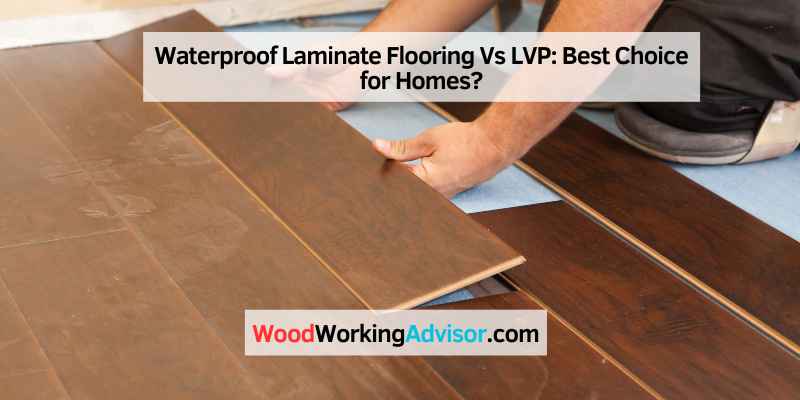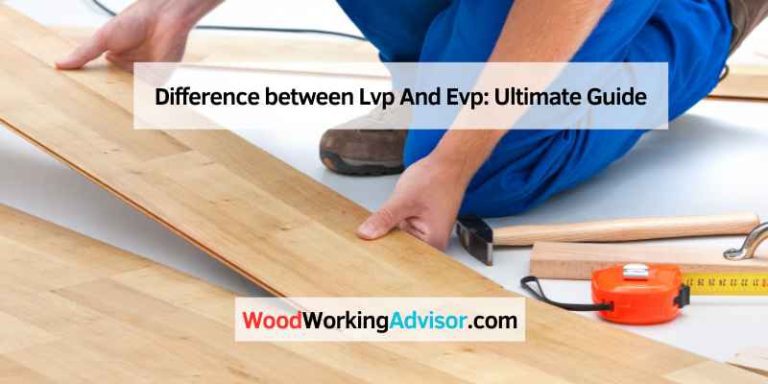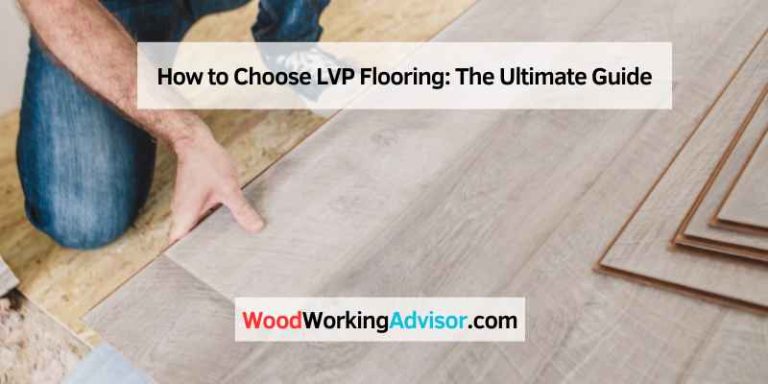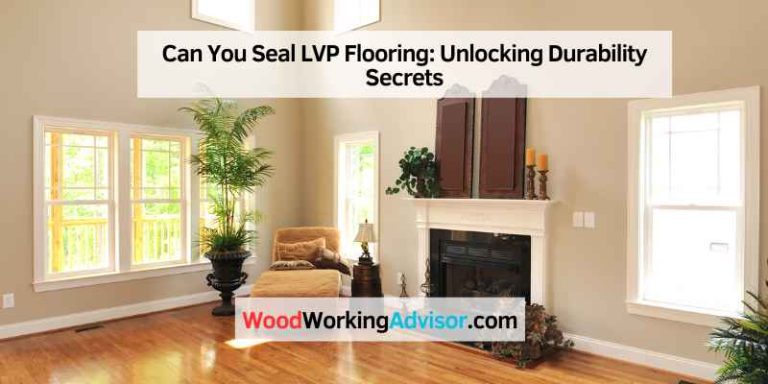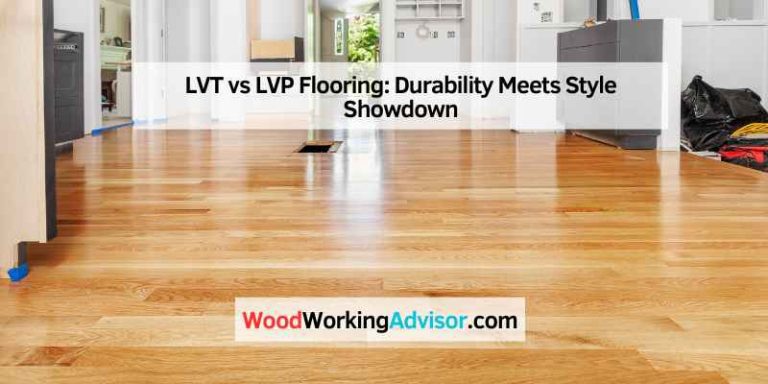Waterproof Laminate Flooring Vs LVP: Best Choice for Homes?
Waterproof laminate flooring and LVP (luxury vinyl plank) are both excellent options for areas prone to spills and moisture, such as kitchens and bathrooms. While LVP can handle spills and moisture, if water manages to seep into the seams or edges, it can cause damage over time.
On the other hand, waterproof laminate boasts superior water resistance, making it an ideal choice for these areas. However, it’s important to note that unlike vinyl, waterproof laminate cannot be fully submerged in water because it still contains wood at its core.
Both laminate and LVP are designed to resist wear and tear, but there are some important differences to keep in mind when considering these two types of flooring. We’ll take a closer look at the differences between waterproof laminate flooring and LVP to help you make an informed decision for your home or business.
Introduction To Flooring Options
Explore the battle between Waterproof Laminate Flooring and Luxury Vinyl Plank (LVP). While LVP offers spill resistance, Waterproof Laminate excels with superior water protection, making it perfect for moisture-prone areas like kitchens and bathrooms. Choose wisely for long-lasting flooring solutions.
Choosing the right flooring for your home is crucial to achieving both aesthetic appeal and functionality. Two popular options on the market are Waterproof Laminate Flooring and Luxury Vinyl Plank (LVP). Let’s delve into the key differences between these two types of flooring to help you make an informed decision.
Waterproof Laminate Flooring
- Waterproof laminate flooring offers superior water resistance.
- It is an ideal choice for areas prone to spills, such as kitchens and bathrooms.
- Laminate flooring is water-resistant from top to bottom.
- It cannot be fully submerged in water due to its wood core.
- Laminate floors are more scratch and dent resistant.
Luxury Vinyl Plank (LVP)
- Luxury Vinyl Plank (LVP) can handle spills and moisture.
- If water seeps into the seams or edges, it can cause damage over time.
- LVP is more resistant to water damage compared to laminate flooring.
- Both laminate and LVP are designed to resist wear and tear.
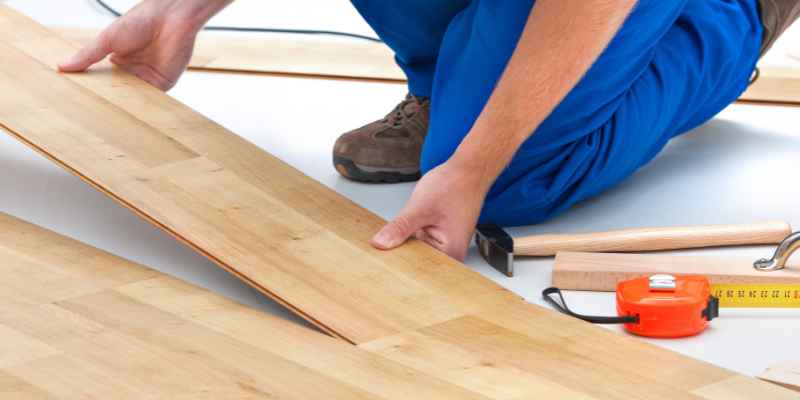
Composition And Durability
When it comes to choosing the right flooring option for your home, it’s important to consider the composition and durability of the materials used. In this article, we will compare Waterproof Laminate Flooring and Luxury Vinyl Plank (LVP) flooring, focusing on the materials used and their durability.
Materials Used In Laminate
Laminate flooring is composed of multiple layers that work together to provide strength and durability. The top layer is a wear layer that protects the floor from scratches, stains, and fading. Beneath the wear layer is a decorative layer that gives the flooring its desired appearance, whether it’s wood, stone, or tile. The core layer is typically made of high-density fiberboard (HDF) or medium-density fiberboard (MDF), providing stability and strength. Finally, there is a backing layer that adds additional support and moisture resistance.
Materials Used In LVP
LVP, on the other hand, is made of several layers designed to withstand moisture and heavy foot traffic. The top layer is a wear layer that protects against scratches, stains, and UV damage. The image layer is where the design is printed, mimicking the look of natural materials like wood or stone. The core layer is made of PVC, which provides stability and waterproofing. Finally, there is an underlayment layer that provides cushioning and sound absorption.
Both laminate and LVP use materials that contribute to their durability. However, there are some differences to consider. Laminate flooring is more scratch-resistant and can handle heavy furniture without leaving marks. On the other hand, LVP is more resistant to water damage, making it an ideal choice for areas prone to spills, such as kitchens and bathrooms.
It’s important to note that while waterproof laminate flooring offers superior water resistance, it is not fully waterproof. If water manages to seep into the seams or edges, it can cause damage over time. LVP, on the other hand, can handle spills and moisture without the risk of damage.
In terms of maintenance, both laminate and LVP are relatively easy to clean. Regular sweeping and occasional damp mopping are usually sufficient to keep them looking their best. However, it’s important to avoid excessive water or harsh cleaning agents that can damage the flooring.
In conclusion, when considering composition and durability, both waterproof laminate flooring and LVP have their advantages. Laminate flooring offers scratch resistance, while LVP provides superior water resistance. Ultimately, the choice between the two will depend on your specific needs and the areas of your home where the flooring will be installed.
Water Resistance Capabilities
When it comes to choosing the right flooring for your home, water resistance is a crucial factor to consider, especially for areas prone to spills and moisture such as kitchens, bathrooms, and basements. In this comparison of waterproof laminate flooring and luxury vinyl plank (LVP) flooring, we will delve into their water resistance capabilities to help you make an informed decision for your space.
How Laminate Handles Moisture
Laminate flooring is known for its water-resistant properties, thanks to its dense and compact construction. The top wear layer of laminate is designed to withstand spills and moisture, providing a protective barrier against water damage. However, it’s important to note that while laminate can handle minor water exposure, prolonged contact with standing water or excessive moisture can still seep into the seams and edges, potentially causing damage over time.
How LVP Stands Against Water
Luxury vinyl plank (LVP) flooring, on the other hand, boasts superior water resistance, making it a popular choice for areas prone to moisture. LVP is crafted with waterproof materials, including a resilient vinyl core and a durable wear layer, offering exceptional protection against water infiltration. Unlike laminate, LVP can handle spills and moisture with minimal risk of damage, making it an ideal option for areas where water exposure is a concern.
Scratch And Dent Resistance
When considering Waterproof Laminate Flooring Vs LVP, one crucial aspect to evaluate is their Scratch and Dent Resistance. Let’s delve into how each type of flooring performs in terms of durability against wear and tear.
Laminate’s Resistance To Wear
Laminate flooring is known for its exceptional resistance to scratches and dents, making it a popular choice for high-traffic areas. The protective wear layer on laminate floors helps maintain their appearance even in the face of heavy use.
LVP’s Durability Against Scratches
On the other hand, Luxury Vinyl Plank (LVP) flooring is highly durable against scratches, thanks to its tough wear layer that shields the surface from damage. This makes LVP a great option for homes with pets or children.
Installation And Maintenance
When it comes to installation and maintenance, there are distinct differences between Waterproof Laminate Flooring and LVP (Luxury Vinyl Plank). It’s essential to understand these variances to make an informed decision based on your specific needs and preferences.
Ease Of Installing Laminate
Waterproof Laminate Flooring offers a relatively straightforward installation process. Many laminate options feature click-lock systems, allowing for easy and quick installation without the need for messy glues or adhesives. This makes it a popular choice for DIY enthusiasts looking to save on installation costs.
Caring For LVP Floors
LVP (Luxury Vinyl Plank) floors are renowned for their low-maintenance nature. They are resistant to scratches, dents, and water damage, making them ideal for high-traffic areas and spaces prone to moisture. Caring for LVP floors is a breeze, requiring simple cleaning with a mild detergent and regular sweeping or vacuuming to maintain their pristine appearance.
Aesthetics And Design Variety
When choosing between waterproof laminate flooring and LVP, consider the design variety and aesthetics offered by each option. Waterproof laminate boasts superior water resistance, making it ideal for spill-prone areas, while LVP can handle moisture but may be vulnerable to damage over time if water seeps into the seams.
Both options have their advantages, so it’s important to weigh the aesthetic appeal along with the functional aspects.
When it comes to selecting the perfect flooring for your home, aesthetics and design variety are critical factors to consider. Both waterproof laminate flooring and luxury vinyl plank (LVP) offer a wide range of design options to choose from, allowing you to find the perfect fit for your home. Let’s take a closer look at the design options available for both types of flooring.
Design Options In Laminate
Laminate flooring is known for its versatility and can mimic the appearance of various types of flooring, including hardwood, tile, and stone. It comes in a wide range of colors, patterns, and textures, making it easy to find a design that matches your home’s decor. Additionally, laminate flooring can be installed in various patterns, such as herringbone, diagonal, and straight, to create a unique look.
Visual Appeal Of LVP
LVP is a popular flooring choice due to its visual appeal and durability. It comes in various designs, including wood, stone, and tile, with realistic textures and patterns that mimic the real thing. Additionally, LVP offers a unique advantage over laminate flooring, as it can be installed in a variety of ways, such as in a herringbone or chevron pattern, to create a trendy and modern look.
In conclusion, both waterproof laminate flooring and LVP offer a wide range of design options to choose from, making it easy to find a flooring option that matches your home’s decor and personal style. Whether you prefer the versatility of laminate flooring or the durability and visual appeal of LVP, both options are excellent choices for any home.
Cost Comparison
When considering the cost of flooring options, it’s essential to evaluate the initial investment and long-term expenses. Let’s delve into the pricing of waterproof laminate and the investment in LVP to determine which option provides the best value for your money.
Pricing Of Waterproof Laminate
Waterproof laminate flooring offers a budget-friendly alternative to traditional hardwood while providing excellent water resistance. The cost of waterproof laminate typically ranges from $2 to $4 per square foot, making it an attractive option for homeowners seeking durability and affordability.
Investment In LVP
Luxury Vinyl Plank (LVP) flooring is renowned for its resilience and low maintenance requirements. The initial investment in LVP averages between $2.50 and $5 per square foot. Although slightly higher in price compared to waterproof laminate, LVP offers exceptional durability and water resistance, reducing long-term maintenance costs.
Environmental Impact And Sustainability
When it comes to choosing flooring materials, it’s essential to consider their environmental impact and sustainability. In this section, we’ll explore the eco-friendliness of laminate flooring and the sustainability of LVP materials.
Eco-friendliness Of Laminate
Laminate flooring is renowned for its eco-friendly properties. It is typically composed of high-density fiberboard (HDF) derived from sustainable wood sources, along with a printed layer and a protective wear layer. The manufacturing process of laminate flooring often utilizes recycled materials, reducing the demand for new resources.
- Laminate flooring is made using sustainable wood sources
- The manufacturing process often incorporates recycled materials
- It helps in reducing the demand for new resources
Sustainability Of LVPP Materials
LVP, or Luxury Vinyl Plank, is known for its sustainable composition. It is crafted using PVC, a synthetic plastic polymer that can be recycled. Additionally, the durability and longevity of LVP contribute to its sustainability, as it reduces the need for frequent replacements, thus minimizing waste.
- LVP is crafted using recyclable PVC
- Durability and longevity reduce the need for frequent replacements
- Contributes to minimizing waste
Pros And Cons Summary
Waterproof laminate flooring and Luxury Vinyl Plank (LVP) have their own advantages and disadvantages. LVP is more resistant to water damage, making it a great choice for areas prone to spills. However, waterproof laminate cannot be fully submerged in water and may be difficult to refinish if its core gets damaged.
Consider the specific needs of your space before making a decision.
Pros and Cons Summary: Waterproof Laminate Flooring Vs LVP
When it comes to choosing between waterproof laminate flooring and luxury vinyl plank (LVP), it’s important to weigh the pros and cons of each option. Both options have their advantages and disadvantages, and it ultimately comes down to your personal preferences and needs.
Advantages of Waterproof Laminate:
– Waterproof laminate flooring is more water-resistant than LVP, making it an ideal choice for areas prone to spills and moisture, such as kitchens and bathrooms.
– It is also more scratch-resistant than LVP, making it a durable option for high-traffic areas.
– With its realistic wood look and feel, waterproof laminate can give your home a high-end look without the high-end price tag.
Benefits of Choosing LVP:
– Luxury vinyl plank is more resilient than waterproof laminate, meaning it can handle heavy foot traffic and is less likely to dent or scratch.
– LVP is fully waterproof, meaning it can be submerged in water without damage, unlike waterproof laminate.
– It is also more versatile than waterproof laminate, as it can be installed in a wider range of environments, including basements and commercial spaces.
In conclusion, both waterproof laminate and LVP have their advantages and disadvantages. If you prioritize water resistance and scratch resistance, waterproof laminate may be the better option for you. However, if you need a more resilient and versatile option, LVP may be the way to go. Ultimately, it’s important to consider your specific needs and preferences when making a decision.
Final Verdict
When it comes to choosing between waterproof laminate flooring and luxury vinyl plank (LVP) for your home, it’s essential to consider various factors to make the best decision. Both options have their own set of advantages and disadvantages, so it’s crucial to weigh them against your specific needs and preferences.
Making The Best Choice For Your Home
Deciding between waterproof laminate flooring and LVP depends on your lifestyle, the room where the flooring will be installed, and your budget. If you’re looking for a budget-friendly option that offers excellent water resistance and durability, waterproof laminate flooring could be the ideal choice. On the other hand, if you prioritize superior water resistance and easy maintenance, LVP might be the better option for areas prone to spills and moisture, such as kitchens and bathrooms.
Factors To Consider Before Buying
Before making a decision, there are several essential factors to consider. These include the level of water resistance needed, the room where the flooring will be installed, the durability and scratch resistance required, as well as your budget constraints. Additionally, consider the installation process and the overall aesthetic appeal of each option to ensure it complements your home’s interior design.
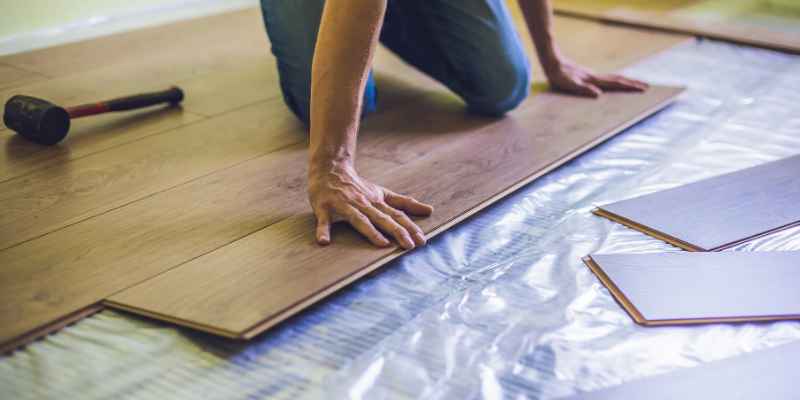
Frequently Asked Questions
Which Is Better, LVP Or Waterproof Laminate?
Waterproof laminate is superior to LVP due to its enhanced water resistance, making it ideal for spill-prone areas like kitchens and bathrooms.
What Are The Disadvantages Of Waterproof Laminate Flooring?
The main disadvantage of waterproof laminate flooring is that it cannot be refinished. While it is resistant to water damage, if the core of the laminate gets damaged, it is difficult to repair or refinish. Additionally, waterproof laminate is not fully waterproof and can be damaged if water seeps into the seams or edges.
Is Waterproof Laminate Actually Waterproof?
Waterproof laminate is water-resistant but not fully waterproof. It can withstand spills, but prolonged water exposure may cause damage.
What Is More Scratch Resistant LVP Or Laminate?
Laminate floors are more scratch-resistant, while LVP is more resistant to water damage. Both are made to resist wear and tear, but there are some differences to keep in mind. Waterproof laminate is ideal for areas prone to spills, while LVP can handle moisture but may sustain damage over time if water seeps into the seams or edges.
Conclusion
The choice between waterproof laminate flooring and LVP depends on your priorities. If you prioritize water resistance, waterproof laminate is ideal for areas prone to spills. On the other hand, LVP is more scratch-resistant and suitable for households with pets.
Consider your needs carefully.

